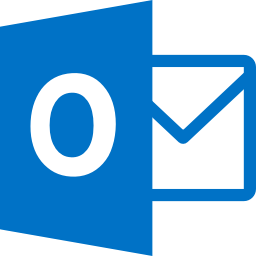How to Integrate Your OpenAI Assistant with Microsoft Outlook (No-Code Solution)
Unlock the full potential of your OpenAI Assistant by seamlessly connecting it to Microsoft Outlook. In this comprehensive guide, we'll explore two powerful integration methods, helping you choose the perfect solution for your needs – whether you're a coding novice or an experienced developer.
About Microsoft Outlook
Microsoft Outlook is a web-based suite of webmail, contacts, tasks, and calendaring services.
Using Agenthost
Agenthost is a no-code platform for creating amazing AI agents that can do useful things with over 2000+ creators including Ivy League universities, startups and more.
- No-coding required so it's perfect for non devs or people who want to save time.
- Link your Assistant to Microsoft Outlook and 7,000+ other apps with just a few clicks
- Access fine-tuning and powerful style customizations
- Easily integrate your Assistant directly into your website + other channels
- Set up your integration in just 5-10 minutes
- Monetize your Assistants with subscriptions/paywalls
Available Actions on Agenthost (through Zapier)
+ plus more!
Steps to connect to Microsoft Outlook via Agenthost
Create an Agenthost account
If you don't have an account, create one by clicking the "Sign Up" button on the Agenthost homepage. They have a free tier so no need to worry about paying.
Create or import your Assistant
In your workspace you can create a new assistant from scratch or import an existing assistant from OpenAI. Please note that assistants are not the same as Assistants. If you're new to assistants or Agents, we recommend starting with a blank agent or creating a website chatbot and using the default settings.
Link your Agent to Microsoft Outlook through Zapier
Now that your agent is created, you can easily link it to Zapier through Agenthost by going to Automations. View our guide on setting up Zapier for more details on getting your credentials.
There's even more you can do
The actions we've shown here are just a subset of the total actions available on Agenthost. Not only can you connect to Microsoft Outlook, but you can also connect to 7,000+ other apps. You can even deploy your agent to your website, finetune it to make it better and start monetizing it just as easily. There's so much more you can build with Agenthost
Option 2: Creating a Custom Assistant Action (For Advanced Customization)
For those seeking more granular control over their OpenAI Assistant's interaction with Microsoft Outlook, creating a custom Assistant action provides a powerful, albeit more complex, solution.
Steps to Create a Custom Assistant Action:
- Understand API authentication: Many apps, including Microsoft Outlook, require OAuth credentials instead of simple API keys
- Study the developer documentation: Familiarize yourself with Microsoft Outlook's API guidelines and authentication process
- Create an OpenAPI schema: Define the endpoints your Assistant will access
- Configure Assistant actions: Add the schema and appropriate credentials to your OpenAI Assistant
While this method requires more technical expertise, it offers unparalleled flexibility in tailoring your Assistant's capabilities to your specific needs. Once set up, your Assistant can make direct API calls to Microsoft Outlook, opening up a world of advanced automation and interaction possibilities.
Choosing the Right Integration Method for You
When deciding between Agenthost and custom Assistant actions for integrating your OpenAI Assistant with Microsoft Outlook, consider the following factors:
- Technical expertise: Agenthost is ideal for non-coders, while custom actions suit those comfortable with API integration
- Time constraints: Agenthost offers rapid setup, whereas custom actions require more development time
- Customization needs: Custom actions provide more flexibility, while Agenthost offers a balance of ease and functionality
- Scale of integration: Consider the number of apps you need to connect and the complexity of your workflows
Both methods have their strengths, and the best choice depends on your specific requirements, resources, and long-term goals for AI integration.





